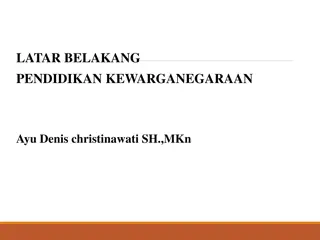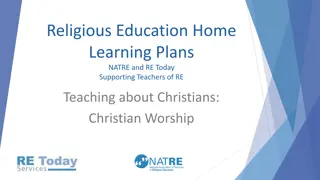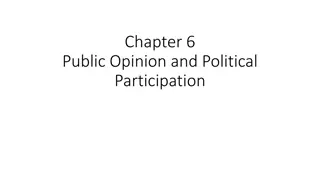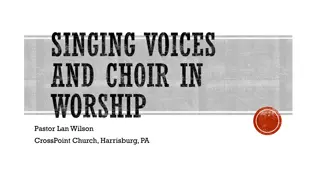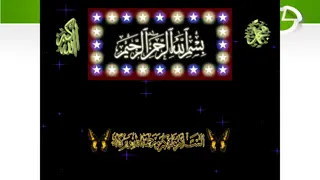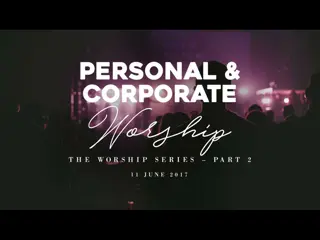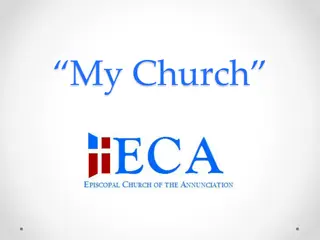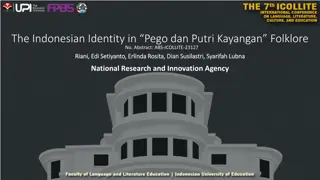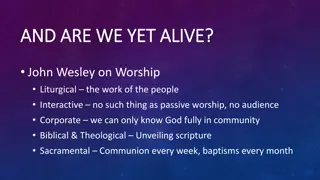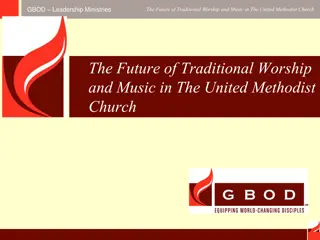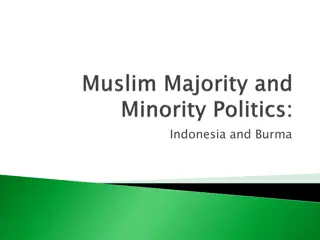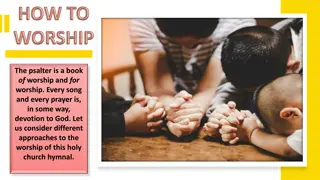Mobilizing the Devout: Examining Political Participation in Indonesian Worship Communities
This book project explores how mosques and Christian houses of worship in Indonesia serve as spaces for political interaction and civic skill development. Through participant observation and surveys, the project reveals that both religious institutions play a role in shaping worshippers' political engagement. The study bridges literature on religion, politics, and socialization, highlighting the nuanced messaging and opportunities for civic engagement within and across religious denominations.
Download Presentation

Please find below an Image/Link to download the presentation.
The content on the website is provided AS IS for your information and personal use only. It may not be sold, licensed, or shared on other websites without obtaining consent from the author. Download presentation by click this link. If you encounter any issues during the download, it is possible that the publisher has removed the file from their server.
E N D
Presentation Transcript
Mobilizing the Devout: Mosques, Churches, and Political Participation in Indonesia Danielle N. Lussier Global Religion Research Initiative Research Summary Associate Professor of Political Science Grinnell College lussierd@grinnell.edu
Executive Summary of Book Project This book project examines the role of houses of worship as a space for political contact and socialization. With a specific, comparative focus on eight worship communities in a single Indonesian city, this project bridges two disparate literatures that animate the study of religion and politics. The findings from studies of churches in predominantly Christian democracies and Muslim activist movements in predominantly Muslim countries are rarely put into dialogue with each other, in spite of the fact that many significant observations have little to do with religious doctrine. Drawing on participant observation, open-ended interviews, and an original survey of more than 800 worshippers, I find evidence that both mosques and Christian houses of worship expose worshippers to political messages and provide them with opportunities to learn and practice civic skills that could be deployed for political participation. I also find that variation in the messages and opportunities occurs both across and within religious denomination.
Global Religion Research Initiative Support This project has been supported by two awards from the Global Religion Research Initiative International Collaboration Grant 2017 Grant with Mohammed Iqbal Ahnaf, University of Gadjah Mada, Center for Religious Cross-Cultural Study; Muhammad Najib Azca and Hakimul Ikhwan, University of Gadjah Mada, Department of Sociology Dr. Iqbal Ahnaf and I collaborated on participant observation of worship services. Dr. Najib Azca and Dr. Hakimul Ikhwan and I collaborated on the original survey of communities. GRRI Book-Writing Fellowship 2018-2019 This fellowship was used to work on drafting a manuscript comprising data gathered as part of the International Collaboration grant and independent research gathered 2014-2016.
Acknowledgements I have received tremendous support in this project from numerous individuals, primarily my collaborators, research assistants, and enumerators in Indonesia: Mohammad Iqbal Ahnaf, Najib Azca, Hakimul Ikhwan, Wahyu Kustiningsih, Mustaghfiroh Rahayu, Kuskridho Ambardi, Monita Nur Fitrian, Ayu Chandra Fitri, Nuki Mayasari, Franciscus Chrismanto Simamora, Anwar Masduki Azzam, Hary Widyantoro, Mohammad Zaki Arrobi, Gregorius Ragil Wibawanto, Fachry Aidulsyah, Odam Asdi Artosa, Citra Maudy Mahanani, Jalu Tathit, Amelinda Pandu K., Liana Dewi, Bilal As Adhanayadi, Vidyanto Purusadhi, Sokemd Arjunaroi M., and Muharrioh; As well as several Grinnell College students, including Jackson Blaise, Caitlin Scaife, Natalie Cook, and Alex Sorosa. My deep thanks to Susan Ferrari and Laura Nelson Lof from the Grinnell College Office of Corporate, Foundation, and Government Relations
Overview of Presentation Research Puzzle, Clarifying Concepts, and Motivating Questions Background on Indonesia Case Selection, Data, and Methods Overview of Several Findings
Research Puzzle: Link between Religious Practice and Political Participation Christians in Democracies Verba, Schlozman, Brady (1995) identify a link between church engagement and political participation among Americans. They identify three causal mechanisms: opportunities to develop civic skills, exposure to political information, and networks of recruitment. Extensive scholarship confirms the significance of church involvement in shaping political lives of Christians in U.S., Europe, and Latin America. Muslims in Non-Democracies Relationship between Islam and politics has been studied extensively, but with focus on organizations, leaders and activists, not average Muslims. The few social scientific studies that do investigate the mosque as a primary unit of analysis examine mosques in Muslim minority countries (Astor 2012; Jamal, 2005) Lussier (2016) finds that individuals in Indonesia (Muslims and Christians) who are more active in religious practice are more politically active as well; How does religious practice influence political participation in a (relatively) young, Muslim majority democracy? Do mosques enhance opportunities for political participation for average Muslims?
Clarifying Concepts House of worship: a permanent physical space where individuals of the same religious denomination come together with the primary purpose of fulfilling devotional duties related to their religious practice. This physical space has a consistent group of individuals who worship in this space. Examples: churches, parishes, mosques, synagogues, and temples. Civic skills: the communications and organizational abilities that allow citizens to use time and money effectively in political life (Verba, Schlozman, Brady 1995). Examples: writing letters, making presentations, participating in deliberations, making organizational decisions.
Motivating Research Questions 1. Do houses of worship serve as spaces where worshippers can learn and practice civic skills that could potentially transfer to political life? 2. Are worshippers exposed to political messages and political mobilization cues at worship and non-worship gatherings organized by mosques and churches? 3. Is there evidence of denominational differences regarding the opportunity to develop civic skills and the transmission of political information at various houses of worship? 4. Do political attitudes and participatory behaviors vary according to the house of worship one attends?
Religious Composition of Indonesia Indonesian Law recognizes six official religions: Islam, Protestantism, Catholicism, Hinduism, Buddhism, and Confucianism. Percentage of Total Population Absolute Numbers (in millions) Muslim 87.2 207.2 Protestant 6.9 16.5 Catholic 2.9 6.9 Hindu 1.7 4.0 Buddhist 0.7 1.7 Confucian 0.05 0.1 Data from Indonesian Census, 2010
Case Selection: Yogyakarta, Indonesia By holding political context constant, I am confident that variation I see among level of activism is due to confessional differences only. City of Yogyakarta largely reflects the religious composition of Indonesia (Kementerian Agama DIY, September 2013): Muslim 82.4% Catholic 10.6% Protestant 6.5% Yogyakarta has long history of religious tolerance that has facilitated open religious practice and low levels of politicization of religion.
Data and Methods 1. Participant observation of worship and non-worship activities at four mosques and four churches (November 2014-April 2015; June-July 2015; June-July 2016, January-February 2017, July-August 2017). 2. Open-ended interviews with active members of worship communities, including administrative and religious leadership. 3. Analysis of published information by houses of worship, including bulletins and information available on their websites. 4. Original survey of members of worship communities in July-August 2017 (N = 828).
Case Selection: Mosques and Churches Mosques Churches 2 Catholic parishes: Mosque 1: Modernist mosque 1) Catholic 1 2) Catholic 2 Mosque 2: Mosque with strong Javanese tradition and both modernist and traditionalist followers 2 Protestant parishes: 1) Protestant 1: Christian church of Java (Presbyterian) Mosque 3: Small neighborhood Mosque with mix of traditions 2) Protestant 2: Pentecostal Mosque 4: Traditionalist mosque
Events Observed at Houses of Worship (November 2014-July 2016) Number of Distinct Events Observed Worship and Prayer Education al Administrative meetings/rehear sals Social/charita ble Neighborho od-based activities House of Worship Total Friday Prayer Daily Prayer 19 31 Koranic study 21 20 Mosques 37 17 73 72 Mosque 1 Mosque 2 14* 11 2 2 2 0 15 7 0 1 14 42 Mosque 3 8 20 5 1 1 6 1 Sunday worship/holid ay celebrations 21 19 17 Weekda y worship Collecti ve prayer Education al Administrative meetings/rehear sals Social/charita ble Neighborho od-based activities Churches Total 37 24 23 45 37 32 Church 1 Church 2 Church 3 3 0 1 3 2 2 1 4 3 5 8 5 12 3 4 0 1 0 26 178 43 344 Church 4 Total 12 102 12 84 7 2 3 2 5 8 60 15 24 49 *includes sholat Eid; Mosque 4 was added to the study in 2016 and is not included in this chart
A Few Quick Findings 1. Do houses of worship serve as spaces where worshippers can learn and practice civic skills that could be deployed for political participation? YES 3. Is there evidence of denominational differences regarding the opportunity to develop civic skills and the transmission of political information at various houses of worship? YES Civic Skills measured on 3-part scale that looked at 1) volume and variety of events; 2) level of formal organizational structure; and 3) control of primary decisions; Scale range 0-12.
Comparing Civic Skill Opportunity Scores Strongest 1. Protestant 1 12 2. Catholic 1 10 3. Catholic 2 9 Mosque 1 5. Protestant 2 6 6. Mosque 2 4 7. Mosque 3 3 Weakest Danielle N. Lussier, Mosques, Churches, and Civic Skill Opportunities in Indonesia, Journal for the Scientific Study of Religion, online February 17, 2019
More Findings 2. Are worshippers exposed to political messages and political mobilization cues in mosque and church settings? YES 3. Is there evidence of denominational differences regarding the opportunity to develop civic skills and the transmission of political information at various houses of worship? YES 4. Do political attitudes and participatory behaviors vary according to the house of worship one attends? YES
Political Messages Are political themes included in sermons during formal worship proceedings? Political content includes direct references to government actions or political activity; Political content includes indirect references to social or economic problems that could have political implications. Are non-verbal political cues communicated in other ways through media, programming, or interactions between religious and political leaders? Do houses of worship create opportunities for political discussion in non-worship settings? Ex: voter training, candidate presentations, group discussions
Frequency, Explicitness, and Consistency of Political Messages in Month Prior to 2017 Mayoral Election House of Worship Mentions elections in sermon Sermon contains other political content Explicitness Code (0-8) Consistency Code (0-8) Presence of other information regarding elections, Ahok, or other political content Observation and analysis of political messages in Jan-Feb 2017 was undertaken in collaboration with Mohammed Iqbal Ahnaf, with funding from the Global Religion Research Initiative 1 2 Mosque 1 3 0 HTI bulletins about voting and candidate controversy Mosque 2 1 0 2 0 Mosque 3 Mosque 4 Catholic 1 0 1 2 1 0 0 1 3 4 1 0 0 Prayers of the faithful; video letter on smart voting; bulletin Held pre-election informational workshop; Held pre-election informational workshop; provided letters and other literature; Catholic 2 1 0 1 1 1 0 Protestant 1 2 0 Protestant 2 0 0 0 2 Explicitness: 0 = no political content; 1 = broad political message; 2 = direct political message (aggregated over 4 sermons) Consistency: 0 = sharply inconsistent messages across sermons; 1 = slightly inconsistent messages; 2 = consistent messages
Inconsistent, Oblique Messages are the Norm Churches Political messages were more direct, telling worshippers to vote (but not for whom) Mosques Several sermons called on worshippers directly to vote for Muslim candidates, but only candidate ever mentioned was in a different city Messages related to other political content were more oblique. Some messages offered more nuanced view of the integration of religious and nationalist values. Frequently there were prayers offered for peaceful elections
Original Survey Sampling Methodology (N = 828) Survey was conducted in eight worship communities in July-August 2017. Interviews were conducted face-to-face by enumerators of the same religious denomination. Prior to developing our survey sample, we first conducted a power analysis to determine the optimal sample size for each house of worship based on its approximate number of worshippers. We determined targets for each house of worship and developed a sampling strategy appropriate for each house of worship to reach the desired sample size. The specific sampling strategy varied by house of worship depending on how the information about worshippers was conveyed to us. For mosques, we were given names of households in densely populated neighborhoods. We used a randomized walking pattern to select households and a further randomization to select a member of the family. For churches, we used a multi-stage randomization of neighborhoods and families based on lists provided by the church.
Survey Sample and Questions Our overall survey sample ranged in age from 18 to 89, with a median age of 50. Among our overall respondents, 66.2 percent are married, 47.6 percent are heads of their household and another 21.4 percent are part of a couple this is the head of the household. The overwhelming majority of respondents 88.2 percent identify as ethnic Javanese, and most (65.5 percent) reported using a mix of Indonesian and Javanese languages for daily communication. Our survey comprised a broad range of questions, including demographic characteristics, participation in organizational life, social networks, political participation, and an extensive battery of questions about the frequency with which individual respondents engaged in activities at their houses of worship. These latter questions were designed such that Muslims, Catholics, and Protestants answered questions that were tailored to their religious experiences, but with question wording designed to facilitate comparison across traditions.
The tables and figures presented in the next several slides are drawn from Danielle N. Lussier, M. Najib Azca, Hakimul Ikhwan, and Wahyu Kustiningsih, From Pulpit to Protest: Religious Practice and Political Participation in Indonesia, in Amy Freedman (ed.), Religion and Politics in Southeast Asia (Pace University Press, 2020). The article describes these findings and tests in more detail.
Frequency of Religious Engagement in Houses of Worship Frequency of religious engagement at houses of worship Muslims (%) Christians (%) Total Men Women Total Men Women More than once per week 66.8 81.1 (N=167) 50.6 (N=92) 49.1 42.3 (N=88) 55.2 (N=128) (N = 259) (N = 216) Several times per month 15.0 (N = 58) 9.7 20.9 (N=38) 48.2 53.9 (N=112) 43.1 (N=100) Includes performing daily prayers; participation in study, recitation, or prayer groups, attendance at worship services, rehearsals, meetings, and social gatherings (N=20) (N = 212) Several times per year 7.0 2.4 (N=5) 12.1 (N=22) 1.4 1.9 (N=4) 0.9 (N=2) (N = 27) (N = 6) Rarely/Never 11.3 (N = 44) 6.8 16.5 (N=30) 1.4 1.9 (N=4) 0.9 (N=2) (N=14) (N = 6) As there were minimal differences across different houses of worship within same tradition, pooled results are reported.
Frequency of Non-Voting Political Participation among Survey Respondents Frequency of participation Often (%) Several times (%) One time (%) Never (%) Muslim Christian Muslim Christian Muslim Christian Muslim Christian Campaign activity 7.7 6.6 6.4 3.9 8.0 11.2 (N=49) 77.8 (N=302) 78.4 (N=344) (N=30) (N=29) (N=25) (N=17) (N=31) Contacting public officials 2.1 (N=8) 1.1 (N=5) 12.6 (N=49) 6.4 4.9 7.1 80.4 (N=312) 85.4 (N=375) (N=28) (N=19) (N=31) Signing petitions 1.8 (N=7) 1.6 (N=7) 5.2 4.6 2.6 4.3 90.5 (N=351) 89.5 (N=393) (N=20) (N=20) (N=10) (N=19) Demonstrations 2.6 0 1.8 (N=7) 0.7 (N=3) 2.6 2.5 93.0 (N=361) 96.8 (N=424) (N=10) (N=0) (N=10) (N=11) All Non-Voting Participation 15.5 (N=60) 13.2 (N=51) 13.2 (N=51) 9.6 9.6 13.0 (N=57) 61.8 (N=239) 64.2 (N=282) (N=42) (N=37)
Hypothesis Tests: Does Religious Engagement influence Political Participation? The next two slides show plots from a series logistic regression analyses that look separately at the Christian and Muslim respondents in the data. The dependent variable is 1 for any individual who has engaged in some form of non-voting political participation and 0 for individuals who have never engaged in any such activities. We examine each category of non-voting participation with this coding. The primary independent variable is frequency of religious engagement, measured as a binary variable in which respondents are coded as 1 if they engage several times a month or more than once per week, and a 0 if they engage less frequently. A second, binary independent variable codes individuals who have served in a leadership position in their house of worship as 1. Control variables include level of education, vulnerable socioeconomic status, gender, and dummy variables for each house of worship. All regression models were estimated using standard errors clustered at the house of worship.
Logistic Regression Plots for Non-Voting Political Participation Part 1
Logistic Regression Plots for Non-Voting Political Participation Part 2
Summary of Hypothesis Tests When socioeconomic and demographic characteristics are taken into consideration, religious engagement and leadership in religious life appear to have a statistically significant relationship on some forms of political participation for Muslims, but not among Christians. The impact of religious engagement and leadership in houses of worship on Muslim participation varies across categories of political action. Muslims who are more religiously engaged are less likely to participate than those who are less engaged. However, individuals who have served in leadership roles in their mosques are more likely to participate in politics. For Christians demographic variables were stronger correlates of non-voting political participation than were levels of religious engagement or leadership experience. The dummy variables were frequently statistically significant, suggesting that belonging to one or another house of worship has an independent effect on whether an individual participates in political life.
The findings from the next several slides are drawn from unpublished work-in- progress in collaboration with Dr. Iqbal Ahnaf. We examine data from the original survey and connect it to the participant observations conducted in houses of worship with the goal of understanding whether there are observable patterns between political messages and vote choice during the 2017 mayoral election in Yogyakarta. We have presented versions of this at the 2017 American Political Science Association Annual Meeting and the 2018 Association for Asian Studies Annual Conference under the title, Appealing to the Devout: Political Messaging in Indonesian Houses of Worship.
Do Political Messages Affect Vote Choice? Dependent variable: Vote Choice: 1 = Vote for Incumbent (Haryadi), 0 = Vote for Opposition Candidate Independent Variables: Self-report of attending Friday/Sunday sermons at specific house of worship on a weekly basis Self-report knowledge of electoral preference of local religious leader Control Variables: Party identification with one of the parties in incumbent s coalition Party identification with one of the parties in opposition s coalition Sex If respondent is working outside the home Dummy variables for each house of worship
Vote for Haryadi Sermon Religious Leader Haryadi Coalition Imam Coalition Male Working Catholic 1 Catholic 2 Protestant 1 Mosque 1 Mosque 4 Mosque 1 Mosque 3 Mosque 6 Mosque 7 Odds Ratio Christian Muslim Christian model N=280; Muslim model N=215; both models were estimated with standard errors clustered at the house of worship
Preliminary Findings on Impact of Political Messaging Adding Qualitative Evidence Mosque 1 & Mosque 4 had higher explicitness scores than others. Elections were never mentioned in Mosque 3. Christian respondents were more likely to claim knowledge of religious leaders electoral preferences (in particular Catholic 2) Respondents from the church with the most explicit direction (Protestant 1) were indistinguishable from the base category. Statistical Model Affiliation with a specific houses of worship has a statistically significant impact on vote choice. Regular attendance at services where sermons are delivered has an impact on vote choice only among Christians. Knowledge of religious leaders preferences is not a statistically significant predictor of vote choice.
Tentative Conclusions: Houses of Worship are a Catalyst between Religion and Politics Both mosques and churches have an impact on shaping individual-level resources for political participation through the inculcation of civic skills and exposure to political information. While there is considerable variation within and across religious traditions, on the whole, Christian churches appear to offer more opportunities for the development of civic skills across a broad cross-section of worshippers. However, individuals who engage in leadership roles in their mosque communities are more likely to become involved in political life. While both mosques and churches expose worshippers to political messages in worship and non- worship contexts, there is considerable variation in the content, frequency, explicitness, and consistency of these messages. Mosques appear to be spaces in which more direct electoral messaging is tolerated in sermons, while churches tend to keep specific electoral discussions out of sermons. We have preliminary evidence that participating in specific houses of worship can shape vote choice, but stronger evidence that the overall worship community to which one belongs has a stronger, more diffuse effect on political life, for both Christians and Muslims in Indonesia.
Next Steps Dr. Ahnaf and I are currently working through further statistical analyses to best represent the trends visible on the voting model. I continue to analyze the participant observation notes and code political messages over a longer period of investigation to better understand the specific dynamics observed in distinct houses of worship. The book manuscript remains under development. I welcome thoughts and questions from other scholars interested in discussing this work: lussierd@grinnell.edu
Published work from this project Danielle N. Lussier, Mosques, Churches, and Civic Skill Opportunities in Indonesia. Journal for the Scientific Study of Religion, Vol. 58, no. 2, June 2019. Danielle N. Lussier and Mohammed Iqbal Ahnaf, Religious Leaders and Elections in the Polarizing Context of Indonesia, (co-authored with Mohammed Iqbal Ahnaf). Humaniora, Vol. 31, no. 3, October 2019. Danielle N. Lussier, Najib Azca, Hakimul Ikhwan, and Wahyu Kustiningsih, From Pulpit to Protest: Religious Practice and Political Participation in Indonesia, in Amy Freedman (ed.), Religion and Politics in Southeast Asia (Pace University Press, 2020). Unpublished conference papers: Danielle N. Lussier and Mohammed Iqbal Ahnaf, Appealing to the Devout: Political Messaging in Indonesian Houses of Worship, presented at 2017 APSA Annual Meeting and 2018 AAS Annual Conference. Danielle N. Lussier, Policing the Pulpit: Religious Regulation within Indonesian Houses of Worship, presented at 2019 APSA Annual Meeting.


